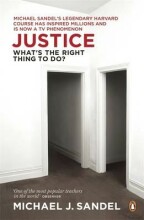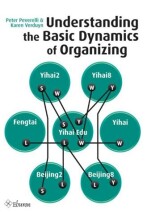Doing the right thing - The case for equality / John Rawls
13 important questions on Doing the right thing - The case for equality / John Rawls
Rawls (political philosopher) offers an clear answer to the question: how can a hypothetical agreement do the moral work of a real one? Which one?
What does Rawls mean with the 'veil of ignorance'? (sluier van onwetenheid)
What happens without the veil of ignorance? (Rawls)
- Higher grades + faster learning
- Never study anything twice
- 100% sure, 100% understanding
Describe the two ethical results of Rawls social contract:
Describe Rawls 2 principles of justice (emerged from the hypothetical social contract)?
Actual contracts are not self-sufficient moral instruments. The mere fact that you and I make a deal is not enough to make it fair. We need an independent standard of fairness. The morality of actual contract carry moral weight when they realize two deals. Which 2?
What is the main idea of the difference principle of Rawls?
Everybody has a different background and that is why Rawls argues that the distribution of income and wealth that results from the free market with formal equality of opportunity can't be considered just. Describe a way of remedying this unfairness?
Rawls beliefs that this meritocratic conception corrects, but still fall short of justice. Explain this.
Describe the 4 rival theories of distribution of justice:
What is distributive justice according to Rawls?
What are the two problems of Rawls with utilitarianism?
2 Utilitarianism is not always a rational decision
(Think about pris. dilemma)
Rawls has 2 rules, which two?
2 Difference principle: there are some differences in people. When there are differences it still should be the case that when the welfare increases, also the less benefited persons should benefit from is.
> The first rule need to be fulfilled before the second one.
The question on the page originate from the summary of the following study material:
- A unique study and practice tool
- Never study anything twice again
- Get the grades you hope for
- 100% sure, 100% understanding































